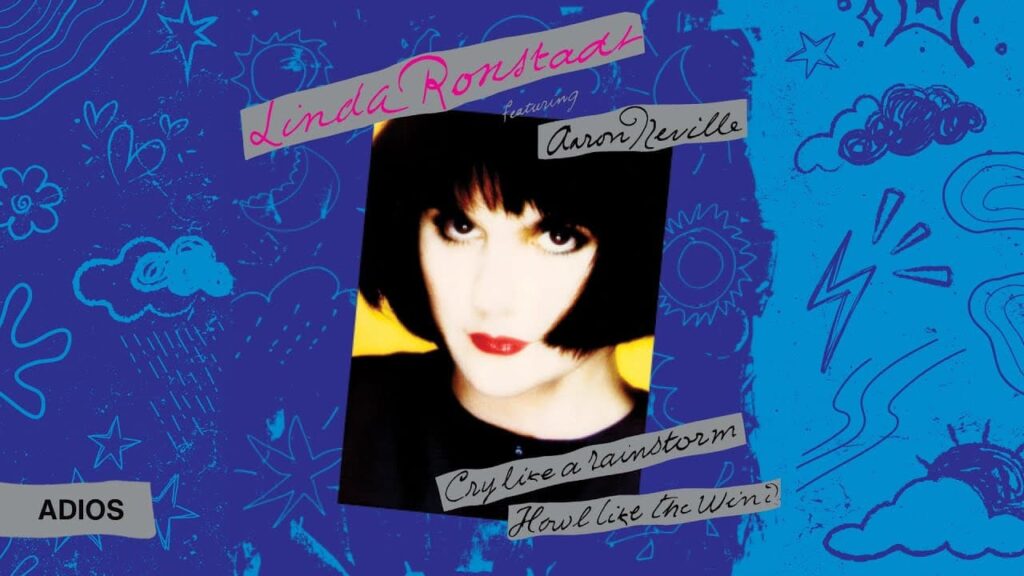
A Farewell Carried on the Soft Edge of Memory and the Unraveling Weight of Love
When Linda Ronstadt released “Adios” as part of her 1989 double-Grammy-winning album Cry Like a Rainstorm, Howl Like the Wind, the song did not chart as a major single on its own, yet it quickly became one of the album’s defining emotional pillars a quiet, devastating centerpiece sustained by Ronstadt’s crystalline soprano and Jimmy Webb’s elegant songwriting. Nestled within a record celebrated for its sweeping arrangements and vocal power, “Adios” stands apart: stripped of theatrics, grounded in restraint, and delivered with the gravity of someone who knows that saying goodbye is rarely an act of closure, but instead a lingering ache carried long after the parting.
Written by Jimmy Webb a composer whose lyrical landscapes so often hinge on longing, distance, and the fragile architecture of human connection “Adios” is less a narrative than a confession. Ronstadt’s interpretation brings its emotional topography into sharper relief. She does not dramatize the pain; she dignifies it. Her voice moves with deliberate clarity, tracing the quiet devastation of a love that has slipped beyond salvaging, where tenderness still exists but possibility does not. In her hands, the song becomes a study in emotional suspension: that moment between holding on and letting go, when the heart has already broken but has not yet admitted it aloud.
At its core, “Adios” is a portrait of separation painted in soft, fading colors. Webb’s lyrics sketch the vastness of the American Southwest the wide-open deserts, the roads that stretch into nowhere, the landscapes that mirror emotional emptiness. There is movement in the song, but it is a wandering without destination; the relationships of Webb’s characters often drift as if carried by the wind, their lives shaped by distances both physical and emotional. Ronstadt, who has long understood the cultural resonance of the American West better than most artists of her generation, sings the song as if she herself is standing on a quiet Arizona highway at sunrise, watching someone she loves disappear into the horizon.
The arrangement amplifies the song’s quiet sorrow. Gentle acoustic textures, a touch of orchestral warmth, and the understated production characteristic of her collaboration with Peter Asher all serve to highlight the fragility of the vocal performance. Nothing intrudes; everything accompanies. It is a masterclass in restraint a reminder that true emotional weight does not require volume, only truth.
In the greater arc of Ronstadt’s storied career, “Adios” endures not because it was a hit single, but because it represents the essence of her interpretive power: a voice unafraid of vulnerability, a storyteller attuned to silence as much as sound, and an artist capable of transforming a quiet farewell into something enduring, timeless, and deeply human.